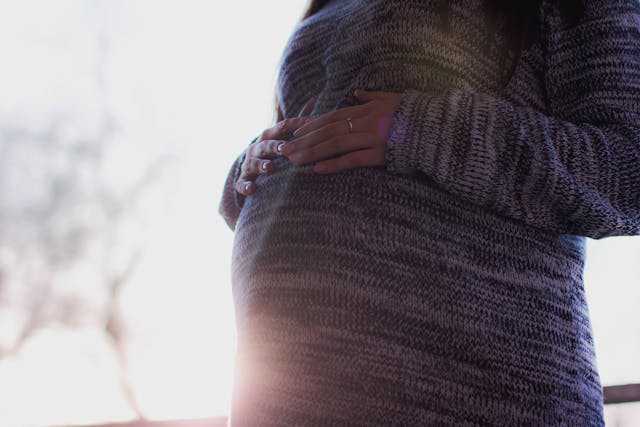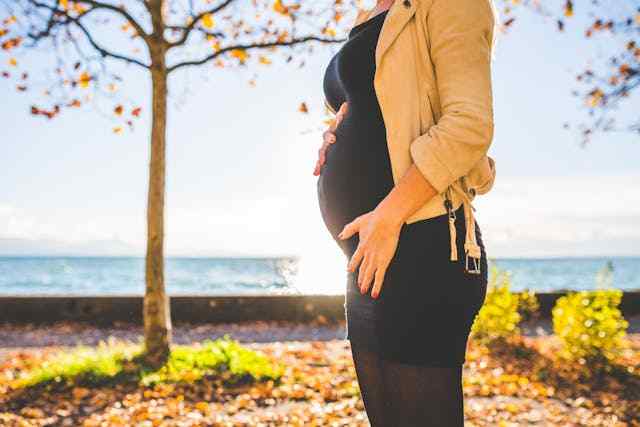IVF – THE FACTS, THE RISKS AND THE SUCCESS RATE

In Vitro Fertilization is an assisted reproductive technology which is often called as IVF in brief. It is used for treating infertility of various kinds and this technology is gaining importance fast.
Increasing number of women are using this technology to get rid of their infertility issues.
In IVF, the ovum or egg and the sperm are artificially fertilized and the formed embryo is then implanted in the woman’s uterus.
“The best gift to a man ever is the ability to re-live childhood through his newborn.”
Due to the stressful life, lack of physical activity and consumption of adulterated food which is filled with toxic chemicals, a lot of health concerns are cropping up in women.
Infertility is a by-product of these factors and is affecting millions across the globe.
IVF is a big respite to those who have been trying for a baby but haven’t had a successful pregnancy due to medical history or any other influencing factors.
There is a lot of buzz around the risks and the side effects of IVF which could easily be handled. In this post, you will come across the details of the IVF procedure and the reasons you should be going for it.
IVF – THE FACTS, THE RISKS AND THE SUCCESS RATE
IVF is recommended to a couple when they have been trying to plan for a baby for many years but have not been able to achieve conception even once.
IVF helps in carrying out artificial fertilization or insemination and the formed embryo is then implanted back to the fetus.
The procedure is quite expensive and the chances of having multiples goes up in this.
The chances of having a successful IVF depends on a lot of factors such as lifestyle, medical history, etc. Nevertheless, the procedure is highly recommendable and has good chances of success.
SIDE EFFECTS OF IVF
The side effects of IVF are mild and easy to handle.
There could be a mild cramping in the uterus and slight bloating in the lower abdomen.
There could also be some constipation and breast tenderness that can be noticed after the procedure.
There could also be secretion of some clear or blood stained liquid after the procedure.
Other side effects include headache, mood variations, hot flashes, pain in the abdomen, nausea or vomiting, breathlessness, faintness, immediate weight gain within a few days of implantation, depression, etc.
If there is any occurrence of heavy vaginal bleeding, pelvic pain, blood in the urine or fever then you should immediately call your doctor and consult him. However, the chances of this are quite less and in most of the cases the implantation is normal.
THE RISKS INVOLVED IN IVF
The risks involved in IVF are few but considerate.
You need to have a good mental commitment before going through this and you should approach it with a positive mind.
The risks are: infection, bleeding or other damage that may happen to the bladder.
There is a risk of pre-mature delivery which increases with IVF.
Patients may also need counseling to deal with the psychological stress and emotional concerns that often come to the surface.
The societal taboo associated with infertility in some parts of the country also needs to be worked upon.
This process is quite expensive and the bad part is that it is not supported by most of the insurance policies.
A few attempts may also be needed sometimes which may work out extremely expensive.
NOTE: With IVF, the chance of twins/triplets increases considerably.
IVF is becoming very common these days with more number of women opting to go for it.
As per the success rate statistics of IVF in America, the live birth rate for each IVF done is 42% for women under 35 years of age, 35 % for women aged 35 to 37 years and 26% for women between 38 to 40 years.
WHAT MEDICAL CONDITIONS CAN BE TREATED BY IVF?
Infertility is of various types. IVF can be an option to treat the following infertility conditions:
- Endometriosis ( in this the inner lining of the uterus grows outside the uterus)
- Uterine of fallopian tube abnormality
- Difficulties in regular ovulation
- Antibody abnormalities
- Problems with Ovulation
- Impaired sperm production
- Uterine fibroids
- Poor egg quality
- Genetic abnormalities running in the family
- Unhealthy sperms
- Unexplained infertility
WHO IS OFFERED IVF?
Usually, women under 40, who have been trying to become pregnant for at least 2 years, are offered IVF through regular unprotected sex but haven’t been able to do so.
The first line of treatment usually involves administering fertility drugs, surgery, or artificial insemination. IVF is the next step if these techniques don’t work.
Though IVF is a promising medical advancement to infertility, with high success rates, it comes with certain risks.
SUCCESS RATE OF IVF IN INDIA
The success rate of IVF depends on various factors like lifestyle (including drinking, smoking, or substance abuse), woman’s age, and reproduction history. In India, the cost of each IVF cycle is approximately:
- 41-43% – for women below 35 years
- 32-35% – for women between 35-38
- 23-28% – for women between 38-41
- 14-17% – for women over 40 years
HOW MUCH DOES THE IVF TREATMENT COST IN INDIA?
Fortunately, the cost of IVF treatment in India is much less than the western countries. The average price of IVF treatment is between 60,000 to 85,000, including the medicine charges.
The cost of IVF increases with the increasing attempts of IVF. There are additional factors in IVF if it is an assisted reproduction, the details of which are as follows:
- The sperm donor cost is usually between 8,000 to 12,000 Rs.
- Embryo donors can cost between Rs.36,000 to Rs.55,000. This treatment is usually suggested if your partner has severe genetic conditions.
- For frozen embryos the cost lies between Rs. 20,000 to Rs. 30,000.
- The cost for Testicular sperm aspiration is around Rs 12,000 and Rs. 18,000.
- The cost of Intracytoplasmic Sperm Injection is between Rs. 20,000 to 45,000.
- cost for ICSI treatment – Rs. 20,000 + Rs. 2, 00,000 = Rs. 2, 20,000 lakh ( approx.)
Average total cost for Assisted IVF : Rs. 50,000(Cost of donor eggs) + Rs.2,00,000(Cost of IVF cycle) = Rs. 2.5 lakhs in total
The cost of assisted IVF is more than double the cost of regular IVF.


